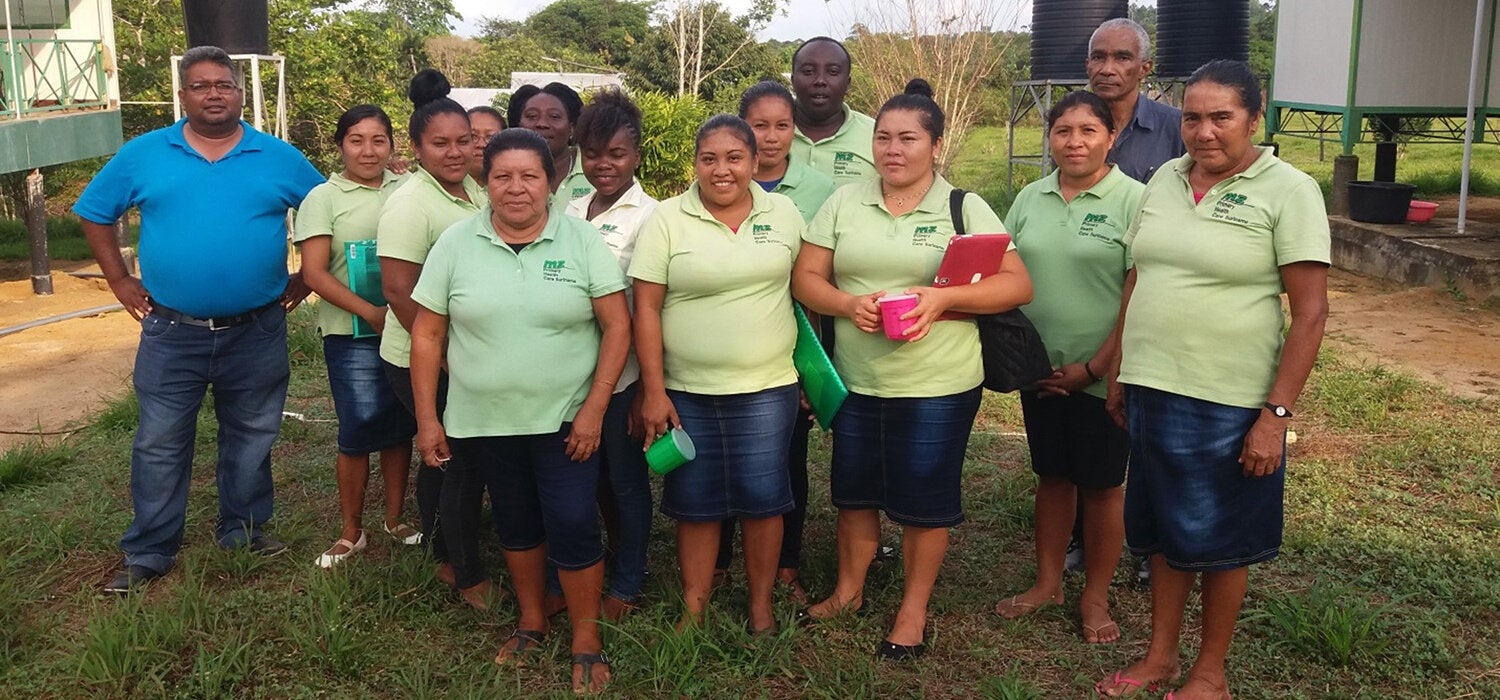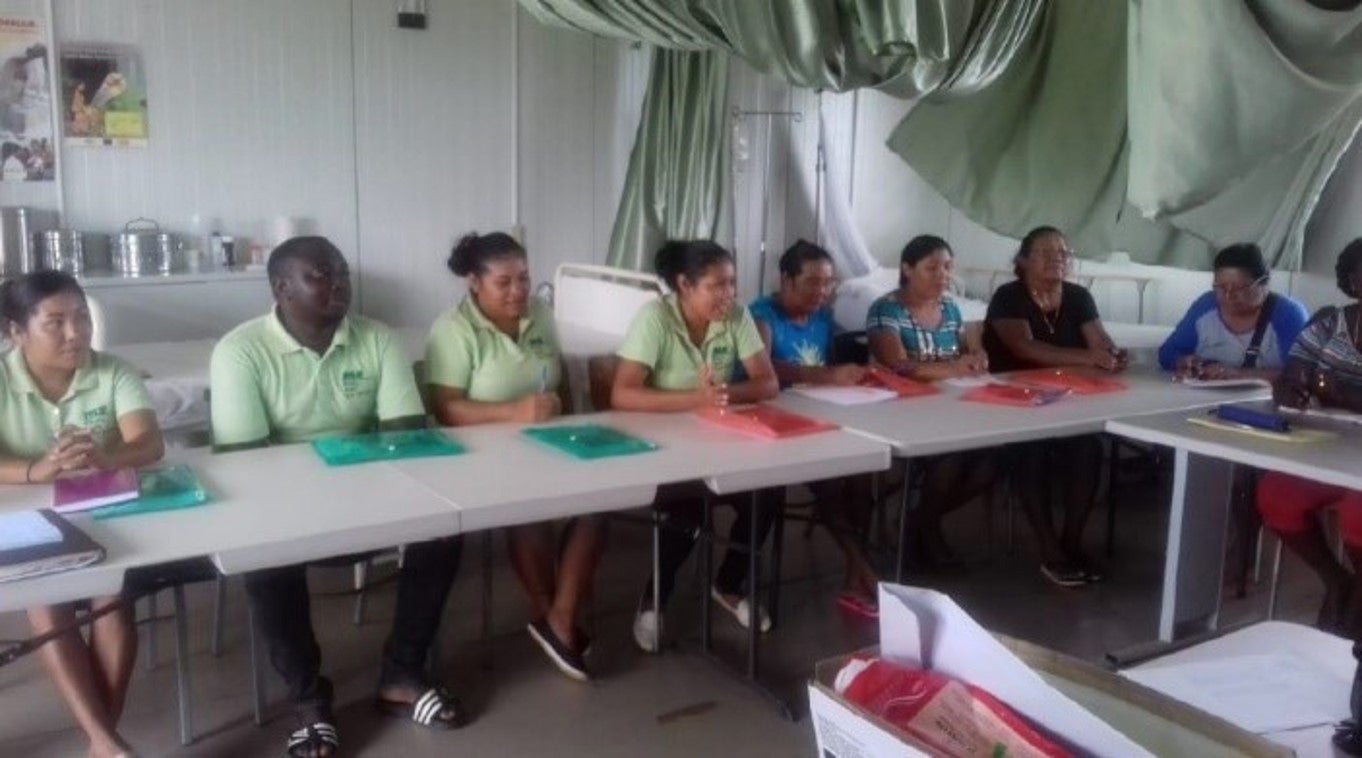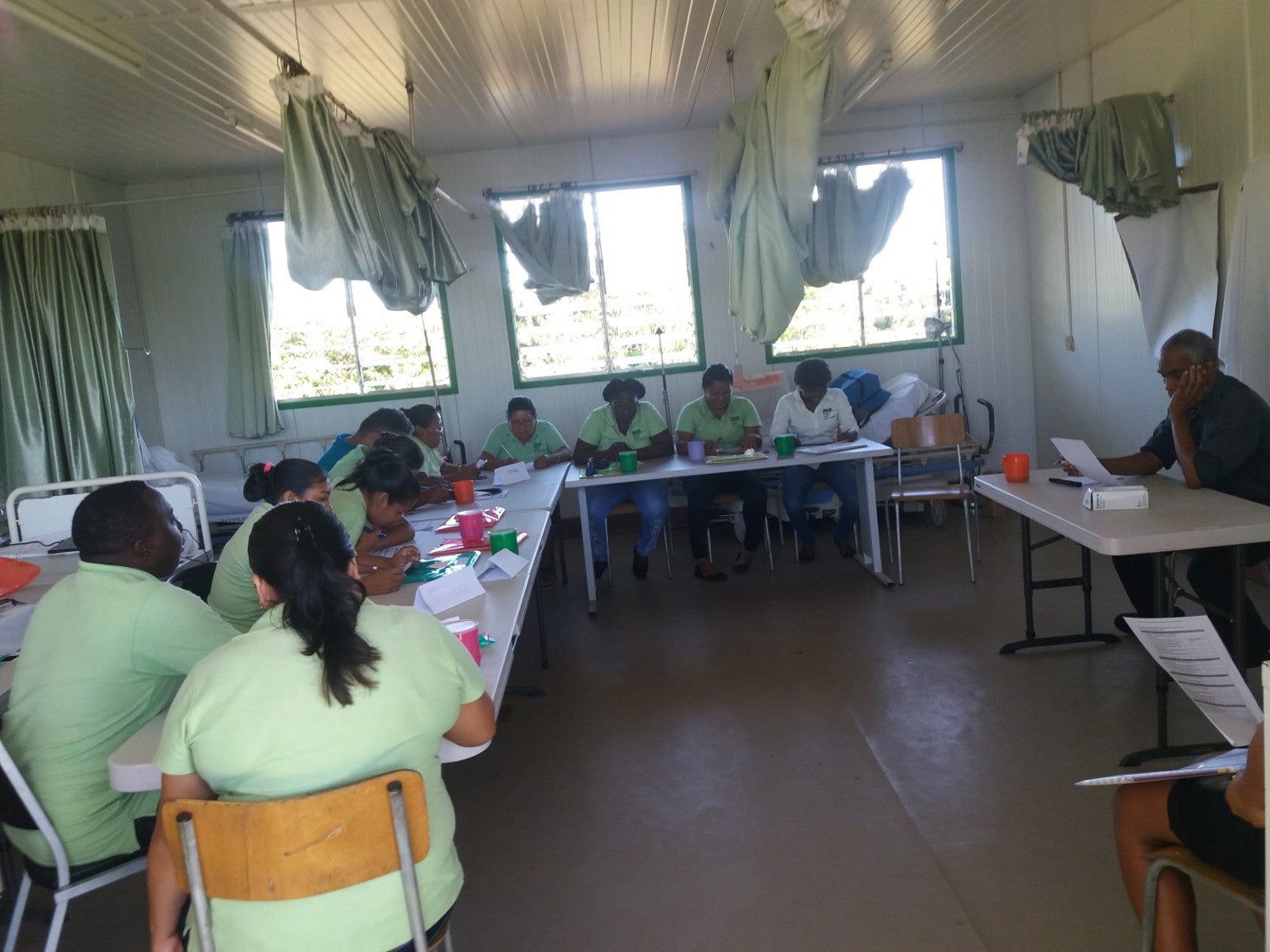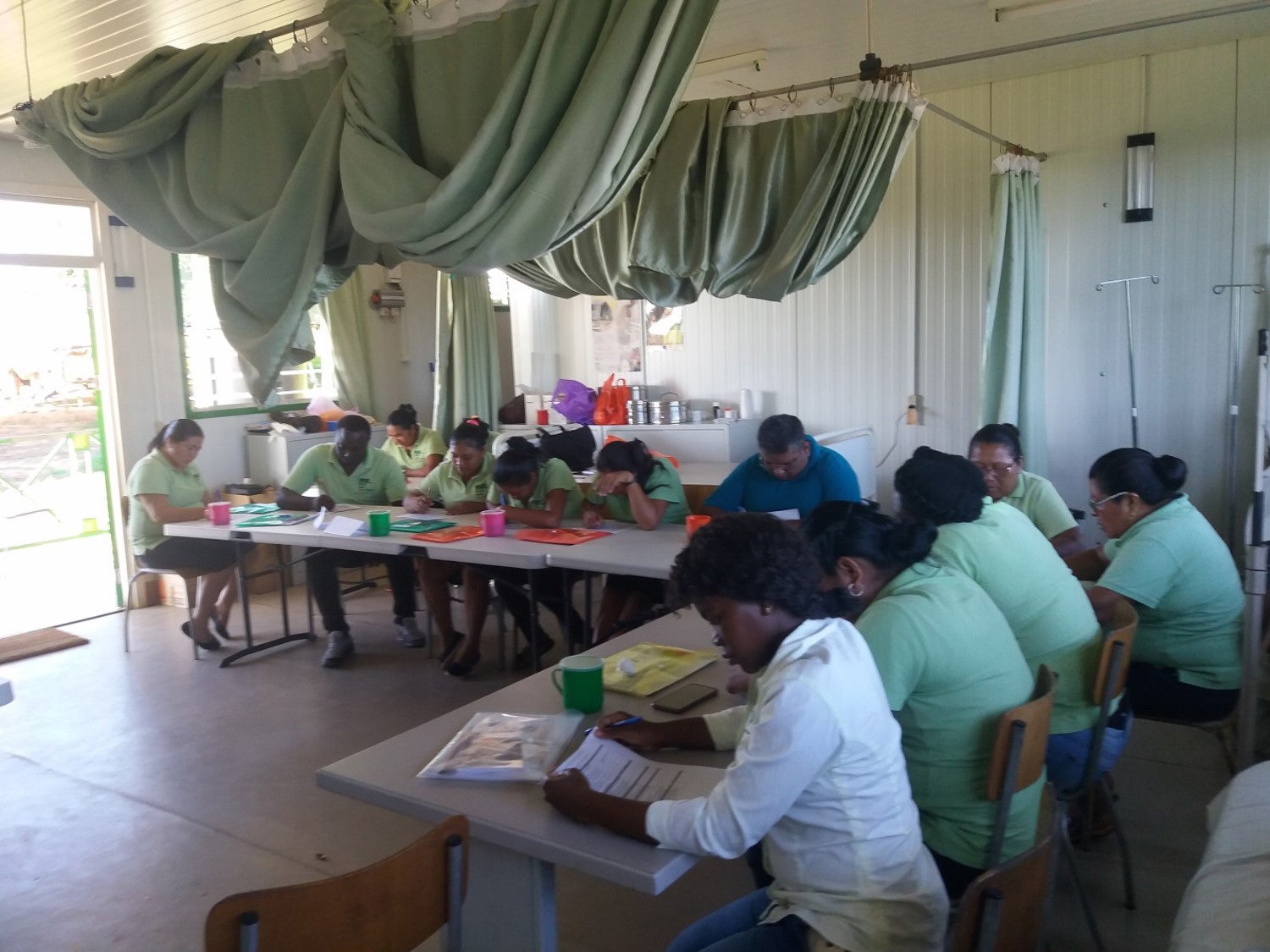With PAHO support, Medical Missions delivered essential health services for cervical cancer screening to women in the remote village of Kwamalasamutu, in the South of Suriname.
The village has an indigineous population of 800-1,000. For women in this area, cervical cancer screening and treatment services are not accessible (1). And mobile services are delivered by the Medical Mission. This led to a partnership between PAHO and Medical Mission to implement a cervical cancer screening project in this area, that led to 90 women being screened, three women were suspected of having cancer so referred for diagnosis, and one woman was diagnosed with cervical cancer and received treatment.
Limited access to screening services is one of the reasons cervical cancer mortality rates are three times higher in Latin America and the Caribbean than in North America, highlighting the inequities in health. In Suriname, cervical cancer is the 2nd most frequent cancer among women, where an estimated 85 women are diagnosed with cervical cancer and 47 die from the disease each year.(2)
PAHO’s regional plan of action for cervical cancer aims to build country capacity for cervical cancer prevention and control. PAHO technical cooperation with the countries of the Region support projects as this one on cervical cancer screening.
Prior to implementing the screening project, health care providers –1 physician and 12 health assistants - underwent a series of trainings titled, ‘It will take a village – community participation in cervix and breast cancer prevention and early treatment’. The training involved a clinical review of screening with visual inspection with acetic acid, and emphasized the importance of engaging the entire community, such as family, birth attendants and people with transport as part of an important support system and motivational mechanisms to assist villagers have access to quality health care.
In addition, the training was an opportunity to discuss local cultural myths and beliefs about cancer and how to overcome these through role-playing exercises. Sayings such as, “cancer is taboo. I never talk about it,” “I don’t menstruate anymore, so I don’t have a problem (with cervical cancer), and “cancer screening for women must be done by women local health assistants [not by males]” represent some of the myths and cultural preferences that were addressed. Lack of trust in patient confidentiality is a barrier to cervical cancer screening that was identified during the training. In such cases, some local women prefer their screening to be done by a doctor, nurse, or health care worker from another policlinic or neighboring town, and if that is not possible, prefer to do without screening.
Providers held education sessions in the polyclinic, where women were open and eager to talk about their cervical cancer screening experiences and highlighted the importance of more cancer education. Women expressed willingness to encourage other women to participate in cervical cancer screening.
Notes:
Teunissen and Noordam (2003). Ecological Survey of the Lands Inhabited/Used by the Trio People of Suriname: Physical and Biological Resources, Their Current Use, and Recommendations for a Development Plan. Paramaribo, Suriname: Amazon Conservation Team Suriname.
ICO/IARC Information Centre on HPV and Cancer. Suriname. Human Papillomavirus and Related Cancers, Fact Sheet, 2018 (2019-06-17). https://hpvcentre.net/statistics/reports/SUR_FS.pdf
Related links
Campaign: "It is time to end cervical cancer!"
Cervical cancer
Virtual Course on Comprehensive Cervical Cancer Control
Virtual Course on "IVAA y Crioterapia para prevención de cáncer cervical" (in Spanish)




